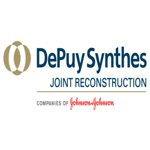 Johnson & Johnson (NYSE:JNJ) subsidiary DePuy Synthes last week reportedly settled with plaintiffs shortly before a Washington state court jury cleared Dr. Jens Chapman and the University of Washington’s Harborview Medical Center in a case filed by the families of a patient who died on the operating table minutes after injection with DePuy Synthes’ Norian XR bone cement.
Johnson & Johnson (NYSE:JNJ) subsidiary DePuy Synthes last week reportedly settled with plaintiffs shortly before a Washington state court jury cleared Dr. Jens Chapman and the University of Washington’s Harborview Medical Center in a case filed by the families of a patient who died on the operating table minutes after injection with DePuy Synthes’ Norian XR bone cement.
The 12-member jury deliberated for more than 3 days, but returned a 10-2 decision that the patient’s death in 2007 was not due to negligence on the part of her surgeon or the hospital, according to The Courtroom View Network.
Synthes was initially a defendant in the case, which began in late June, but the company settled with the plaintiffs “shortly before attorneys delivered their closing arguments,” according to CVN.
The victim’s family was seeking $6 million, with 5% of the responsibility in the death falling on Synthes. The jury did find that Dr. Chapman failed to warn the patient about Norian’s risk, but said that even a clearer warning wouldn’t have kept a “reasonable person” from consenting to use in a back surgery.
The trial is the 1st in a group of civil lawsuits being filed by families of patients who died after being injected with Norian XR bone cement.
At least 5 patients died during otherwise routine operations after the Norian cement was used off-label in their spine surgeries. The bone cement was initially developed by a company called Norian, which Synthes bought in 1999 for about $50 million. Synthes, in turn, was acquired by J&J for $21.3 billion in 2012.
The FDA approved Norian XR for use in arm bones and portions of the skull, but in 2007 required Synthes to put a warning label on the product about its contra-indication for spine surgeries. Lawsuits filed by the families of the patients who died allege that Synthes knew as early as 2002 that Norian XR was unsafe for use in the spine due to its propensity to form clots in the bloodstream, according to Courtroom View Network. Pigs injected with the cement died within minutes and in vitro tests with human blood showed quick clotting the in the compound’s presence, according to court filings cited by the legal news service.
Synthes paid paid $22.5 million in fines and was forced to sell off the Norian subsidiary to settle federal criminal charges that it ran an off-label promotion scheme for the Norian XR cement. Four Synthes executives – Michael Huggins, Thomas Higgins, John Walsh and Richard Bohner – were sentenced to prison terms after pleading guilty to misdemeanor charges over the scheme
In 2012, the families of 2 of the patients who died sued Synthes and the 4 former executives for wrongful death and elder abuse; the family of a 3rd patient filed a lawsuit later that year (1 of those cases later settled in mediation, CVN reported).
In 2013 the families of 2 more patients brought suit against Synthes, Norian, Dr. Jens Chapman and the University of Washington. The families of Reba Golden, who died in 2007, and Joan Bryant, who died in 2009, claim that neither knew about the FDA warning over using Norian in spine procedures. The trial in their case is due to begin June 27 in Seattle’s King County Superior Court.
Johnson & Johnson paid more than $21 billion for Synthes in 2012 . Kensey Nash (NSDQ:KNSY), which paid $22 million for the Norian product line, was later bought up by Dutch firm Royal DSMfor $360 million in 2012.

